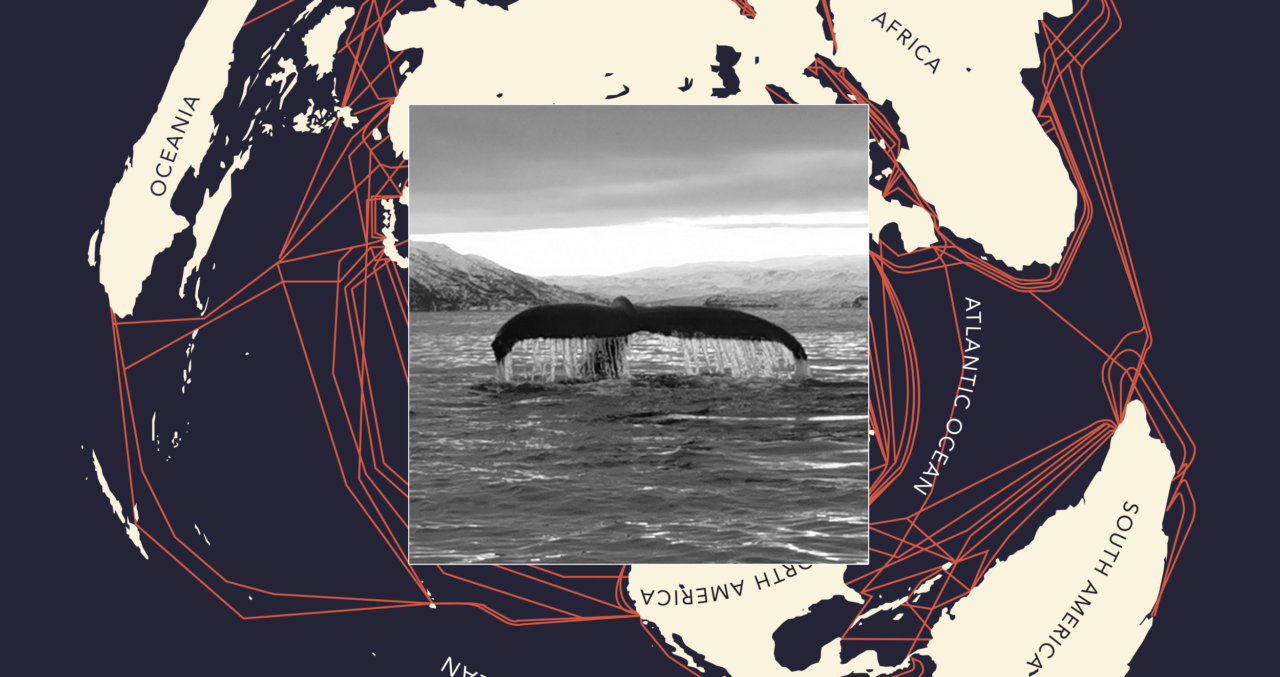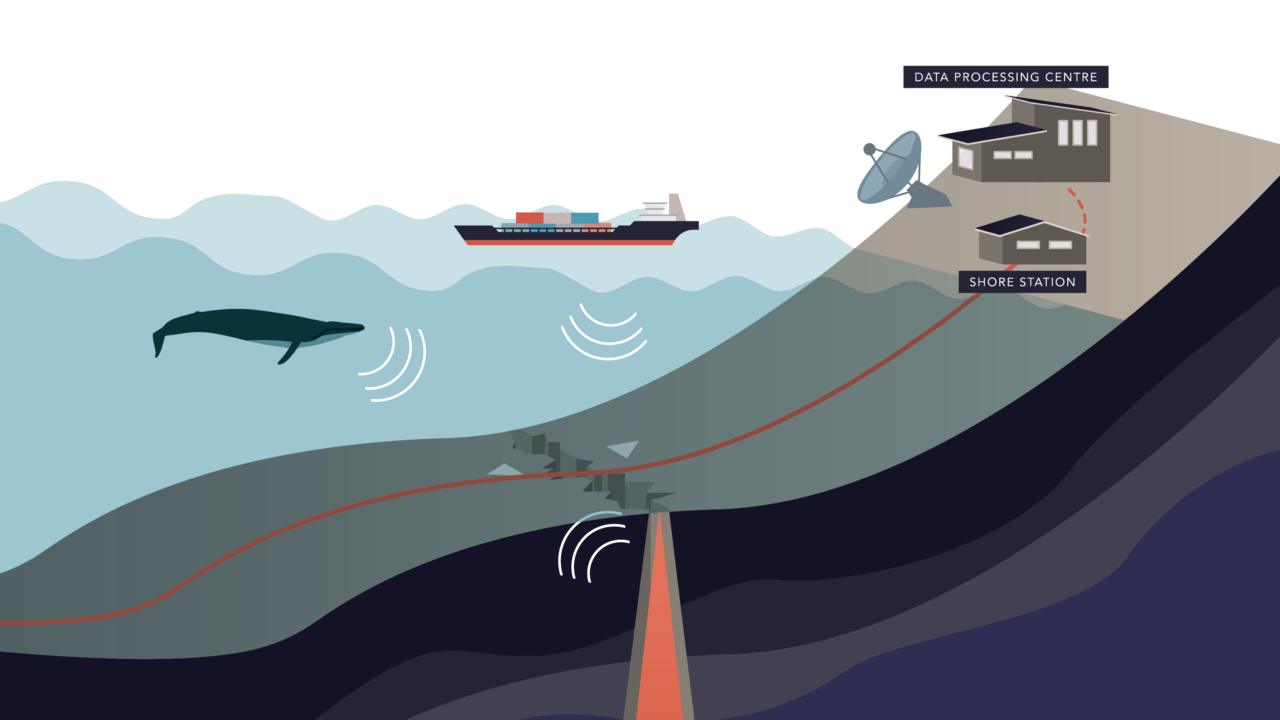Distributed Acoustic Sensing (DAS) for Marine Conservation
Repurposing fiber optic cables for real-time underwater acoustic monitoring.

Distributed Acoustic Sensing—or DAS—transforms existing fiber optic cables, like the ones used in telecommunications cables to convey the internet worldwide, into large and densely sampled listening arrays. It works by connecting specialized measurement equipment to the dry-end of a fiber (e.g., on shore), which can detect nanometer-level movements in the fibers and convert these movements into strain measurements similar to acoustic pressure.

Instead of relying on traditional hydrophones, which can only measure sound at specific locations, the DAS allows for the creation of numerous “virtual” measurement points along the cable (e.g., every few meters over tens of kilometers). This capability enables real-time in situ data collection of sound sources at the habitat scales and can help in identifying and tracking marine species. It is a significant improvement over traditional archival hydrophone systems where data are accessible only after instrument retrieval, and doesn’t have the operational hurdles of existing real-time platforms such as the need to source low-power data processing for autonomous mobile platforms (e.g., gliders) and high infrastructural costs for fixed installations (e.g., cabled hydrophones). This new method can also be deployed from land, making it more convenient and efficient.
Initial studies have demonstrated the ability to detect low-frequency sounds, such as those made by blue and fin whales, and there is ongoing development to refine the technology and methods for visualizing, detecting and localizing various marine acoustic signals as well as assess and compare the system’s performances to traditional acoustic methods. Future projects may include testing this technology in offshore wind environments and potentially deploying new sensing fibers to monitor specific ecosystems, like coral reefs, at high spatial resolution.